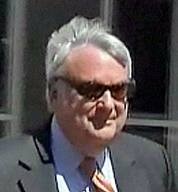
- JB
- U.S. Distict Judge Hardy Mays
Now that the expected failure of a mediation process is complete, the stage is surely set for U.S. District Judge Hardy Mays to rule on the long-pending litigation to determine whether — and when — the process of creating municipal school districts in the Shelby County suburbs is constitutional and may go forward.
After a last, largely pro forma, session on Friday, the contending parties (some of whom had already decamped for Thanksgiving travel), gave up, and Mays is expected to rule this week on the constitutionality of last spring’s legislation speeding up the timetable for the suburban districts, as well as on the final clause of 2011’s Norris-Todd law, which lifted a long-standing ban on new special school districts.
The immediate issue, subject of a trial in Mays’ court that concluded in September, is whether the several pieces of enabling legislation were improperly applied to Shelby County only, thereby circumventing state constitutional requirements for ratification of such legislation by local legislative bodies.
On one side of the issue are the plaintiffs: the Shelby County Commission, the Memphis City Council, and the City of Memphis; on the other are six suburban municipalities — Germantown, Collierville, Bartlett, Arlington, Lakeland, and Millington — as well as the state itself.
If Mays should rule against the suburbs, they will be constrained to remain within the larger Unified School District created by the forthcoming merger of Memphis City Schools and Shelby County Schools in August 2013. The mayors and other spokespersons for those communities have left no doubt, however, that they will immediately consider other options leading to de facto school independence, perhaps by the charter-school route.
In that scenario, however, proponents of the Unified system remain hopeful that the suburbs will avail themselves of a trial period of at least one year or perhaps more before making another effort to break away on their own.
In any case, even should Mays permit the municipal school process to go forward on the state-constitutionality issue, one additional obstacle remains — the plaintiffs’ charge that such a process would further re-segregation of the races, thereby violating the federal constitution. Mays has tentatively scheduled trial on that matter for the first week of the new year.
Last week’s Flyer editorial offered further analysis of the various prospects.